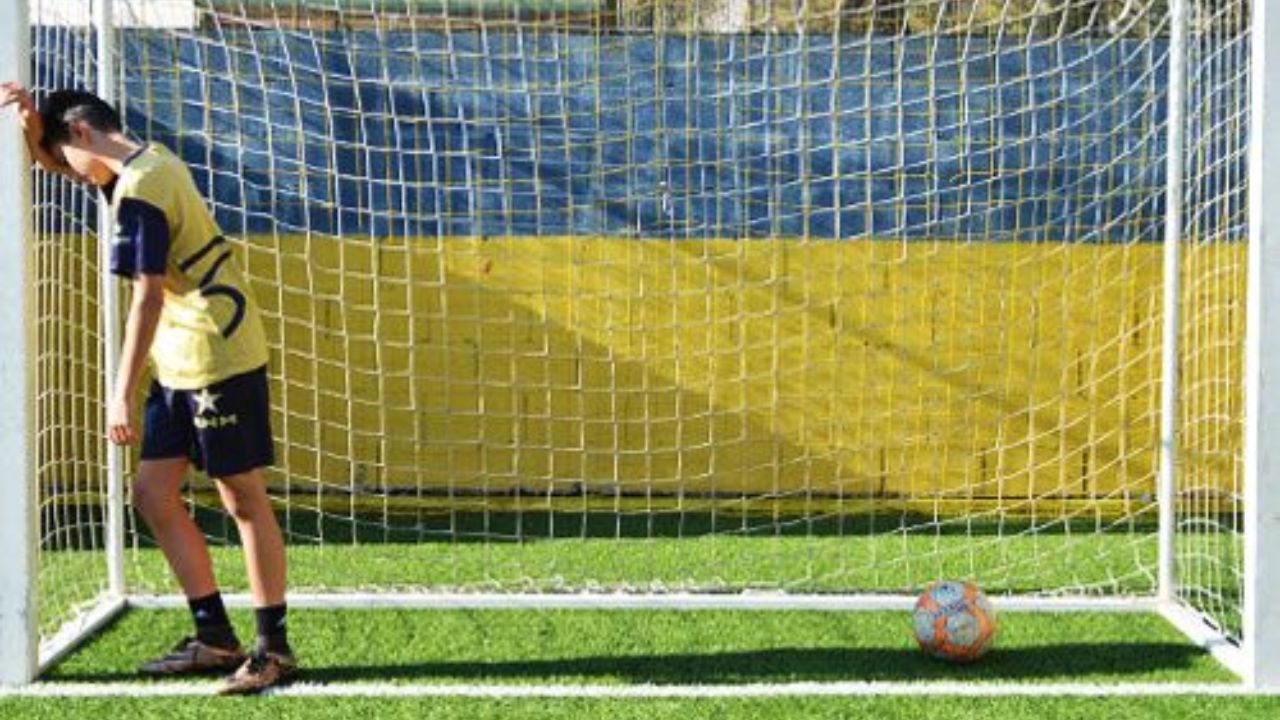Goalkeeping in football can be a challenging mental and physical task. Goalkeepers need to master their mental game, which goes beyond diving, saving, and controlling their penalty box. It is important to understand the mental aspects of goalkeeping as well as the equipment you will need for success on the field. These mental strategies can make you a better goalkeeper, whether you are new to the game or have been there for a while.
Mental Battle and Challenges for a Goalkeeper
The mental challenges goalkeepers face are often unique and set them apart. It can be difficult to deal with the weight of the responsibility of preventing goals and being isolated in the goalkeeper’s position. What are some ways to overcome the challenges that you will inevitably face?
Cultivate Unshakable Confidence
Confidence is the foundation of success in goalkeeping. The first step to becoming an excellent goalkeeper is believing in yourself. Try to challenge the negative thoughts that you have in your mind and replace them with positive affirmations. Visualize your past victories and remind yourself that you can make crucial saves.
You can also break down your goalkeeping development into more manageable, smaller goals. Use your small achievements as stepping stones to greater confidence. You can build confidence by achieving even a single extra save in a game.
It’s crucial to keep in mind that making mistakes is part of life. Instead of dwelling on mistakes, look at them as an opportunity to grow and learn. Every mistake is an opportunity to improve your mental toughness and skills.
Stay laser-focused
The goalkeeper must remain focused throughout the match. Losing concentration could lead to a conceded goal. You’re not sure where to begin? Practice is the key. Focus on what you are doing right now. Do not get overwhelmed thinking about the future or ruminating on old events. You’ll also want to include goalkeeper drills that mimic real-life situations, such as reaction drills and one-on-1 scenarios. You will learn to maintain concentration when under pressure. It’s important to maintain your mentality in a game while practicing.
Consider including mindfulness meditation in your training program. You can improve your ability to stay present and decrease anxiety by using this practice. This practice helps to train your mind to be present at all times. Goalkeepers must be able to concentrate and focus intensely during matches in order to keep track of the ball, predict plays, and make quick decisions. Meditation techniques such as breathing exercises and relaxation can be used to help control anxiety and build focus.
Do not overlook the importance of game day. Create a routine for pre-game that will help you to transition from a relaxed mindset into one of focus and game readiness. Mental preparation is important. Spend a moment to calm down and focus your mind. To reduce stress and anxiety, use techniques to relax, such as meditation or deep breathing. Pre-game rituals help you to have a positive mindset on the field.
How to Manage Pressure Gracefully
Goalkeeping is a demanding job, particularly in matches with high stakes. It can change the game if you learn to manage pressure effectively. Learning visualization techniques is the best way to start. Visualise your poised and confident handling of pressure situations. Imagine yourself making important saves, diving in the correct spot, and controlling your penalty area.
Also, deep breathing exercises may help. These exercises can help calm nerves and decrease anxiety. To stay calm during stressful situations, breathe in a controlled and rhythmic manner.
It may be a good idea to develop a routine to ensure that you don’t feel the pressure. Create pre-shot or pre-kick rituals to help you relax and stay calm. Routines can help you feel more comfortable and in control.
You should always seek help if needed. Do not hesitate to ask your coach, team-mates, or sports psychologists for help and advice on how to manage pressure.
Embrace Communication
As a goalkeeper, it is important to communicate effectively with your defensive players. You don’t just have to shout instructions. It is also important that your defensive team feels united and in control. Communication is a key element of confidence. Use simple, concise, and clear commands to communicate clearly. Even when you make mistakes, it’s important to support and encourage your team. A positive and supportive tone promotes teamwork, morale, and better communication.
You can also use non-verbal cues with your defense to give specific instructions. For example, when you want to push the attacker or hold a defensive line.
You’ll need to spend time getting to know each member of your team. Understanding your team’s strengths and weaknesses, as well as the preferred defensive methods, will help you to understand them better. Your communication should be tailored to their style.
Develop Mental Resilience
It is not uncommon for goalkeeping to be an emotionally draining job, as there are highs and lowers. Developing resilience is one of the biggest mental challenges for a goalkeeper. It is important to develop mental resilience in order to maintain your performance when faced with adversity. It’s not an easy process, but learning from professionals can help. Learn the mentality and strategies used by elite goalkeepers. Learn how to handle challenges and use those skills in your game.
Reflection is also very important after each game. Take time to evaluate your performance after a difficult match or conceding a goal. Reframe failures and setbacks to be opportunities for growth.
Lastly, you must remain committed. Recognize that resilience takes time to build. Keep your commitment to training, mental conditioning, and development of the goalkeeper.
Not only does gear matter, but also mental preparation
It’s vital to find the very best equipment on sites such as ours. But the mental side of goalkeeping is also important. This is a process, not an end. Consistent effort is required, as well as self-awareness and the willingness to grow and adapt. You can develop mental resilience and become an outstanding goalkeeper by cultivating confidence and maintaining focus.
The mental aspect of goalkeeping is just as important as physical skills. Your mental strength and focus will show in your performance between the sticks. You’ll be an asset to your team. Step onto the field with confidence. Accept the mental challenges for a goalkeeper and continue to improve as both a goalkeeper as well as a mentally resilient athlete. Success starts with the right mindset.
In these challenging conditions, you might need a set of best goalkeeper gear as well. If you want to explore our uniforms, gloves, or footballs, please have a look at our shop.

